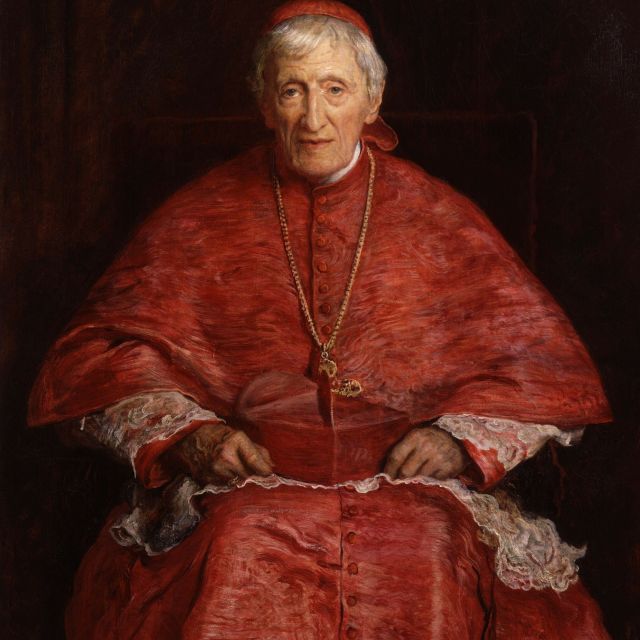Published
01.08.2019
01.08.2019
Author
Rev. Fr. Joseph Koterski, SJ
Rev. Fr. Joseph Koterski, SJ
Why is Cardinal Newman's canonization important for our times?
Canonization is a recognition by the Church that an individual has truly led a saintly life. In the popular press, this process is sometimes misunderstood, as if it were a decision by the Church to place someone in heaven. Quite the contrary. The lengthy process of examination of an individual's life and deeds is a mark of the Church's humility in this matter. There is no claim about altering anyone's post-mortal destiny. Rather, with due humility, the Church has come to a recognition that a person has truly led a holy life and is pleasing to God. By the formal act of a canonization the Church is proclaiming that we may honor such people as saints, ask their intercession with God, and take them as examples of holy living.
The canonization of John Henry Cardinal Newman this year is the result of a long process that involved a thorough examination of his life and his voluminous writings. And, as always, the Church awaited the special evidence of divine miracles. They are taken as a sign from God.

Why is his canonization important for our times? There are many reasons. Let me list a few.
(1) For many people, the sacraments are thought of as merely nice ceremonies, without any real power or efficacy. Baptism is thought of as a baby-naming ceremony, the Eucharist as a memorial of what Jesus did, marriage as a way of publicly declaring a union of hearts in love. The struggle Newman underwent in the process of his conversion was centered on the question of the efficacy of the sacraments. As a young man, he grew interested in religion because it satisfied his emotional needs, but he came to see the difference between an emotionally appealing ceremony and a true sacrament, established by Christ, given to the Church, that God really uses as a means of giving His grace. In his forties, he came to see that it was the Catholic Church to whom God gave the sacraments and that the middle way practiced by the Church of England was insufficient. There is much to learn from the reasons for Newman's conversion about the nature and importance of the sacraments.
(2) So many questions under discussion now in the Church concern the distinction between continuity and rupture. When new ideas and suggestions about the faith arise, there is need to determine whether or not they are genuine developments of what God revealed in the person of Jesus Christ. Following on the thought of one of the early Church Father, Vincent of Lerins, Newman wrote a very important volume on this subject. It was highly influential at the Second Vatican Council and has remained crucial for evaluating the work of theologians ever since.
(3) In their preaching, priests and deacons need good models of how to integrate solid Christian doctrine with practical advice and steady encouragement about taking one's faith seriously. Newman's sermons are models of how to do this, not to mention being rich resources that preachers can mine for ideas. Although generally longer than the sermons of today, Newman's sermons are delightful and inspiring reading, especially in the area of reliable spiritual advice.